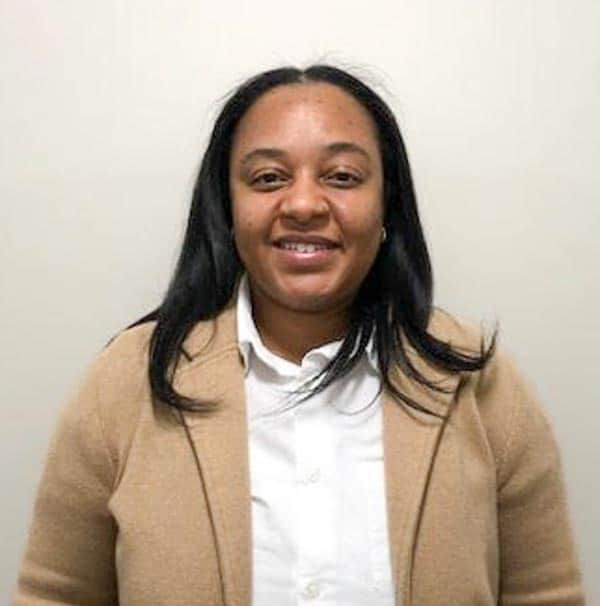Currently, the leading cause of drug overdose death in America is fentanyl — a powerful synthetic opioid narcotic that is roughly 100 times more potent than morphine. Over the course of the past several years fentanyl has increased in prevalence throughout the country, and is responsible for significantly more overdose fatalities than other substances combined. According to the Centers for Disease Control and Prevention, 70 percent of overdose deaths in 2021 involved fentanyl. Overdose deaths exceeded 100,000 for the first time in American history. The State of Colorado saw over 900 fentanyl overdose deaths from 2020 to 2021; an increase of 70 percent from one year to the next. So, what is being done to hinder the circulation of fentanyl and associated deaths throughout the state?
A new bill was recently presented, one that would help fentanyl-addicted offenders by encouraging them to attend treatment rather than spend time behind bars. While the new bill would inevitably help combat the local opioid crisis and work to decrease the amount of opioid-related overdose deaths in the area, a lack of available treatment options could prove challenging. At CuraWest we are dedicated to helping those in the Colorado area who have been suffering from opioid addiction, providing them with an effective, multi-staged curriculum of clinical care. Contact us to learn more about treatment options in your area.
The Fentanyl Accountability and Prevention Bill
During the 2022 Regular Session, the Fentanyl Accountability and Prevention Bill (HB22-1326) was presented. The proposed law would require anyone charged with a fentanyl-based offense to be assessed and potentially ordered to participate in a Colorado addiction treatment program. The possibility of sending hundreds of people into state-funded addiction treatment facilities might overwhelm clinicians, who could face capacity and management issues.
The Bill states:
“Concerning measures to address synthetic opiates, and, in connection therewith, changing the criminal penalties associated with synthetic opiates; using a substance abuse assessment to direct appropriate treatment at sentencing; providing opiate antagonists in the community; providing synthetic opiate detection tests in the community; creating immunity for furnishing synthetic opiate detection tests; providing treatment for persons in the criminal justice system; developing a fentanyl prevention and education campaign; providing funding for substance use and harm reduction; evaluating the substance use and harm reduction needs across the state; requiring a post-enactment review of the implementation of this act; and making an appropriation.”
Pushing More People into Treatment Has Divided Lawmakers & Clinicians
Some Colorado clinicians believe the law will be a step in the right direction despite temporary staffing shortages and other potential strains. Others believe an inherent lack of effective, reputable treatment options will put some Coloradians in a tough position. However, a lack of addiction treatment in Colorado is not a new issue. An estimated 43,000 Colorado residents currently meet the diagnostic criteria for an opioid use disorder, and fewer than half of these individuals have access to the treatment services they need to begin healing. While some services like methadone maintenance clinics are readily available, more effective, long-term treatment options — like residential rehab — can be difficult to come by and unaffordable.
At CuraWest we are dedicated to providing an individualized and effective curriculum of clinical care to those in need, starting with a short stay in a privately operated detox center and continuing with an immediate transition into a higher level of care. Our new residential program caters to Colorado residents who would benefit from longer term care. We work directly with many major regional and national health insurance providers, ensuring the services we offer remain accessible and affordable. Contact us today to learn more.
Months-Long Waitlists for Colorado Rehabs
When it comes to the effective treatment of opioid addiction, residential rehabs offer services and resources that state-funded detox facilities and methadone clinics cannot.
Because fentanyl is so powerfully addictive, individuals who have been misusing the drug for any significant length of time often need to completely rebuild their lives.
What is Currently Working?
On a national level, roughly 20 percent of individuals with a diagnosable substance use disorder have access to effective, long-term treatment options. In Colorado, roughly 35 percent of individuals can access the treatment they need. While availability of treatment is higher in Colorado than in the majority of the country, there is still much work to be done.
In addition to a statewide increase in privately owned treatment centers, recent amendments to existing drug laws could be a step in the right direction.
In April of this year, the House Judiciary committee moved to enforce harsher penalties for those caught possessing at least one gram of fentanyl. A 7-4 vote confirmed that possession of one gram or more would result in a felony charge. Those caught with under one gram of fentanyl in their possession would face a misdemeanor charge, and harsher penalties if they were convicted four times or more.
The hope is that the looming threat of a felony conviction would deter individuals from using the drug, and that those facing charges could be persuaded to enter treatment as an alternative course of action.
Our Prescription Drug Detox Services Include
Will Mandatory Treatment Work?
There is some controversy surrounding the idea of mandated treatment. Will forcing people into treatment work long-term? The National Institute on Drug Abuse states, “Treatment does not need to be voluntary to be effective: Strong motivation can facilitate the treatment process. Sanctions or enticements in the family, employment setting, or criminal justice system can significantly increase both treatment entry and retention rates and the success of drug treatment.” One of the main principles of effective treatment is that it does not always need to be willingly sought in order to be beneficial; however, there is ample evidence pointing to the contrary. A scientific study published by the National Library of Medicine states, “There is limited scientific literature evaluating compulsory drug treatment. Evidence does not, on the whole, suggest improved outcomes related to compulsory treatment approaches, with some studies suggesting potential harms. Given the potential for human rights abuses within compulsory treatment settings, non-compulsory treatment modalities should be prioritized by policymakers seeking to reduce drug-related harms.”
Whether or not the bill will be effective is yet to be seen. In the meantime, those afflicted with opioid use disorders in Colorado and surrounding areas do have a range of potential treatment options at their disposal — the trick is knowing where to look. To learn more about residential treatment centers in your area, contact us today.
Begin Healing Now!
Have A Call With One Of Our Treatment Advisors
Don’t Suffer Any Longer
Join CuraWest for Take Back Day
If you or someone close to you has been using fentanyl or any other opioid narcotic, there is help available. At CuraWest we offer a multi-staged opioid addiction recovery program, beginning with a short stay in our medical detox and continuing with up to 3 weeks in our residential inpatient treatment center. When it comes to successfully overcoming fentanyl addiction, a short stay in a state-funded detox center is generally insufficient. In order for sobriety to be maintained, the mental and emotional implication of active addiction must be addressed — alone, physical stabilization is not enough. Once our clients have undergone a safe, comfortable opioid withdrawal they will begin implementing their personalized aftercare plans, which includes a seamless transition into a higher level of care. All you have to do is make the decision and reach out for help, and we will take care of the rest. Once you contact us you will be connected with an experienced Treatment Advisor who will guide you through our straightforward admissions process. We look forward to speaking with you and helping you get started on your personal recovery journey today.

Reviewed for accuracy by:
Jasmine Billups
LPC-S
Jasmine has worked in the mental health field for over 18 years. She earned her B.A. in Psychology with a Minor in Child and Family Relations from North Carolina Central University, and her M.A. in Mental Health Counseling from Argosy University. Jasmine is a Licensed Professional Counselor Supervisor and has specialized in addiction for over 10 years.





















